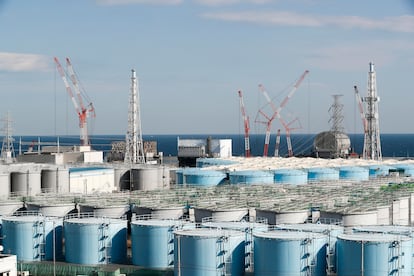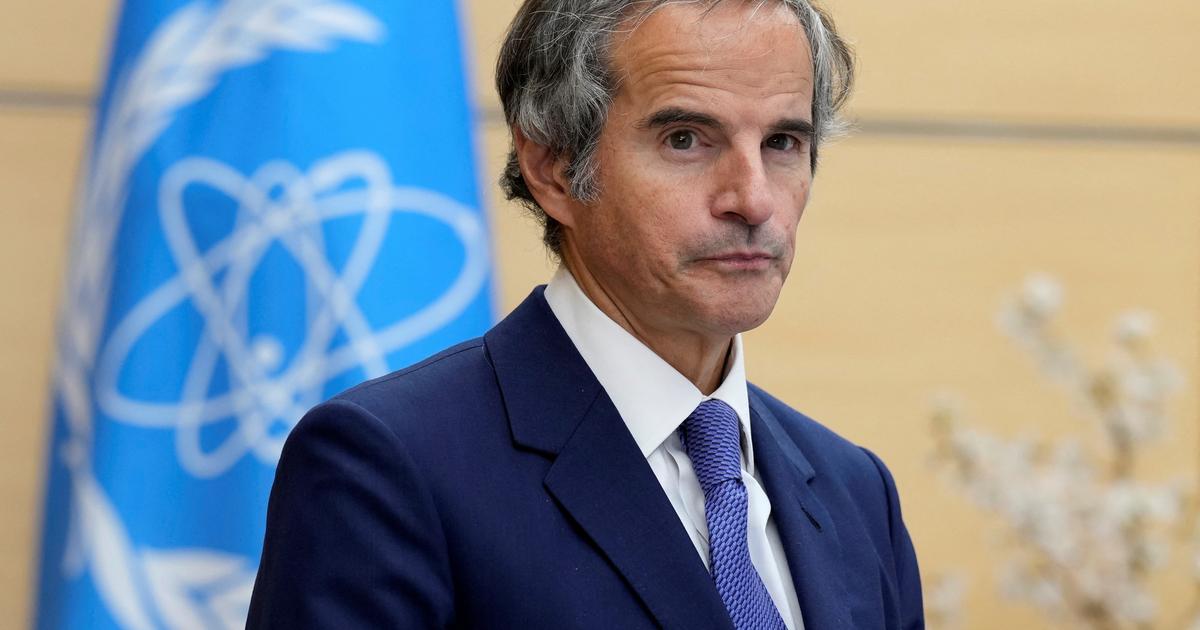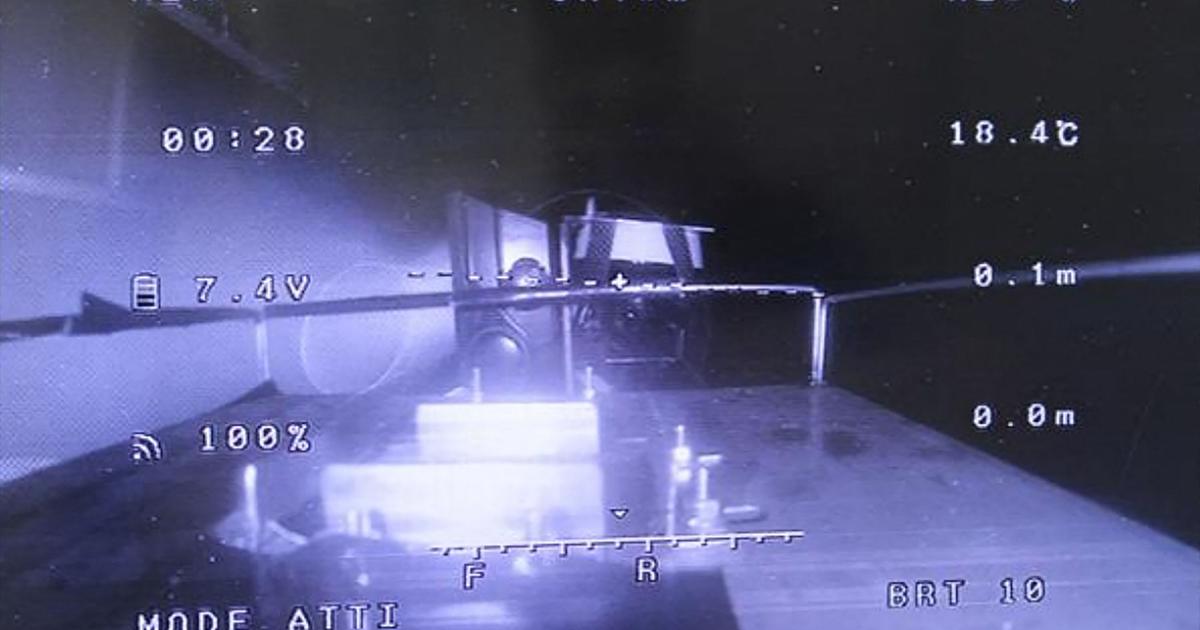Reactors of the Fukushima nuclear plant, in an image from last year. KIMIMASA MAYAMA (EFE)
The rise in energy prices and the war in Ukraine are also having an impact at the other end of the northern hemisphere: Japan, which suffered the second worst nuclear accident in history a decade ago, now plans to build next-generation atomic reactors and extend the life of the existing ones, as announced on Wednesday by the Japanese Prime Minister, Fumio Kishida.
The Asian country would thus take a radical turn in its energy policy, preparing to abandon the fate of a
de facto
nuclear blackout decreed after the 2011 tragedy at the Fukushima Daiichi plant.
“The Russian invasion of Ukraine has enormously transformed the global energy landscape”, and for this reason “Japan needs to keep in mind potential crisis scenarios in the future”, Kishida stated.
The plan contemplates the construction of a new generation of nuclear plants, extending the useful life of the reactors to over 60 years —from the current 40— and having a total of 17 reactors by next summer to reduce emissions of CO₂ and secure supply.
The measures have been proposed during a meeting of a government initiative,
Green Transformation
(GX), between the Japanese Prime Minister himself and members of the Executive, focused on the transition of the energy system towards cleaner sources.
"Japan must solve its problems for the future while promoting energy transformation," said Kishida at the meeting.
In March 2011, an earthquake measuring 9 on the Richter scale with an epicenter off the coast of Japan, together with the tsunami it caused, caused the meltdown of three reactors at the Fukushima Daiichi plant, the worst nuclear accident in history. since the Chernobyl disaster of 1986. The Japanese government and the new regulatory authority for atomic energy then established stricter safety criteria, forcing all plants in the country to suspend operations until they meet the new standards.
Only a few reactors, however, received the go-ahead from the authorities to return to operation.
Most remained idle and no new facilities were built.
Eleven years later, only 10 of the country's 33 nuclear reactors are active, but not all operate year-round.
At the end of July, seven were working and three were undergoing maintenance.
In the last decade, and despite having committed to achieving climate neutrality in 2050, Japan has maintained its dependence on fossil fuels, which it imports to a large extent and whose price began to increase last year, before skyrocketing with the invasion. Ukrainian Russian.
Fossil fuels
The country's energy supply, with few interconnections due to its insularity and mountainous terrain, still depends 90% on fossil fuels.
Oil is the most important source: it accounts for 40% of the total, the bulk of it imported, according to the International Energy Agency (IEA).
Gas has been gaining relevance after the freezing of atomic production, and in this case, production is also very limited.
Dependence on imports exceeds 90% —the main supplier is Australia, followed by Malaysia;
Russian gas weighs less than 10%—and the country has a large number of regasification plants, almost 40, due to the fragmentation of the gas transportation infrastructure.
Since the Russian invasion of Ukraine, like other countries, Japan has suffered from the escalation in the prices of raw materials and fears the cold of winter.
This summer, with electricity generation stressed by high temperatures, the authorities have already asked the population to save energy as much as possible.
The same path is being followed in other latitudes.
The EU has asked its partners to save 15% of their gas consumption to avoid major problems due to the risk of a total supply cut by Russia.
Germany, the main economy of the Old Continent and also the most dependent on gas from Moscow, is also moving in a direction similar to that of Japan.
In addition to having authorized the start-up of coal-fired power plants that have already been shut down due to their high level of contamination, it is studying expanding the operation of its nuclear plants, whose blackout is scheduled, in principle, for next year.
The IEA has also leaned in favor of nuclear power, both because of its role in the transition to a green model and because of the current global energy crisis.
"In addition to ensuring the operation of the 10 reactors that are already online, the government will lead an effort to do everything possible to restart" the others whose safety has been approved by the country's nuclear agency, Kishida said on Wednesday.
The prime minister has urged those attending the meeting to prepare "the construction of new-generation nuclear reactors equipped with new safety mechanisms" and "make maximum use of existing nuclear plants."
Kishida has instructed officials to propose concrete measures before the end of the year with a goal of rolling them out in the summer of 2023, including initiatives on how to "gain understanding" from citizens, whose distrust of nuclear power and All the public management of the plants grew after the Fukushima accident.
"Accelerate your discussions on all possible measures, based on the opinions of government and opposition parties, as well as experts, to reach concrete conclusions by the end of the year," said the ruler.
Last July, Kishida had already announced that the Government was studying restarting most of the reactors that had received authorization, with the aim of avoiding risks of supply shortages in the winter months.
The roadmap would go through raising the number of active nuclear reactors to nine for next winter and 17 for next summer.
The Japanese Ministry of Economy, Trade and Industry, for its part, has been studying the development of new-generation nuclear power plants.
In this case, the sights are set on 2030.






